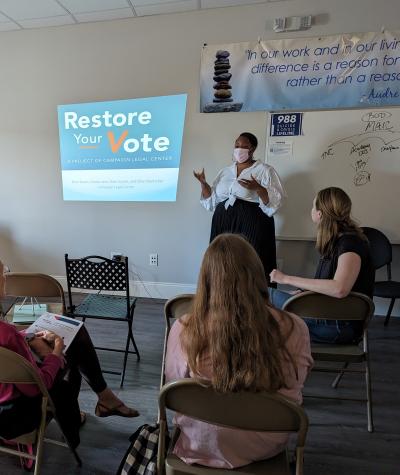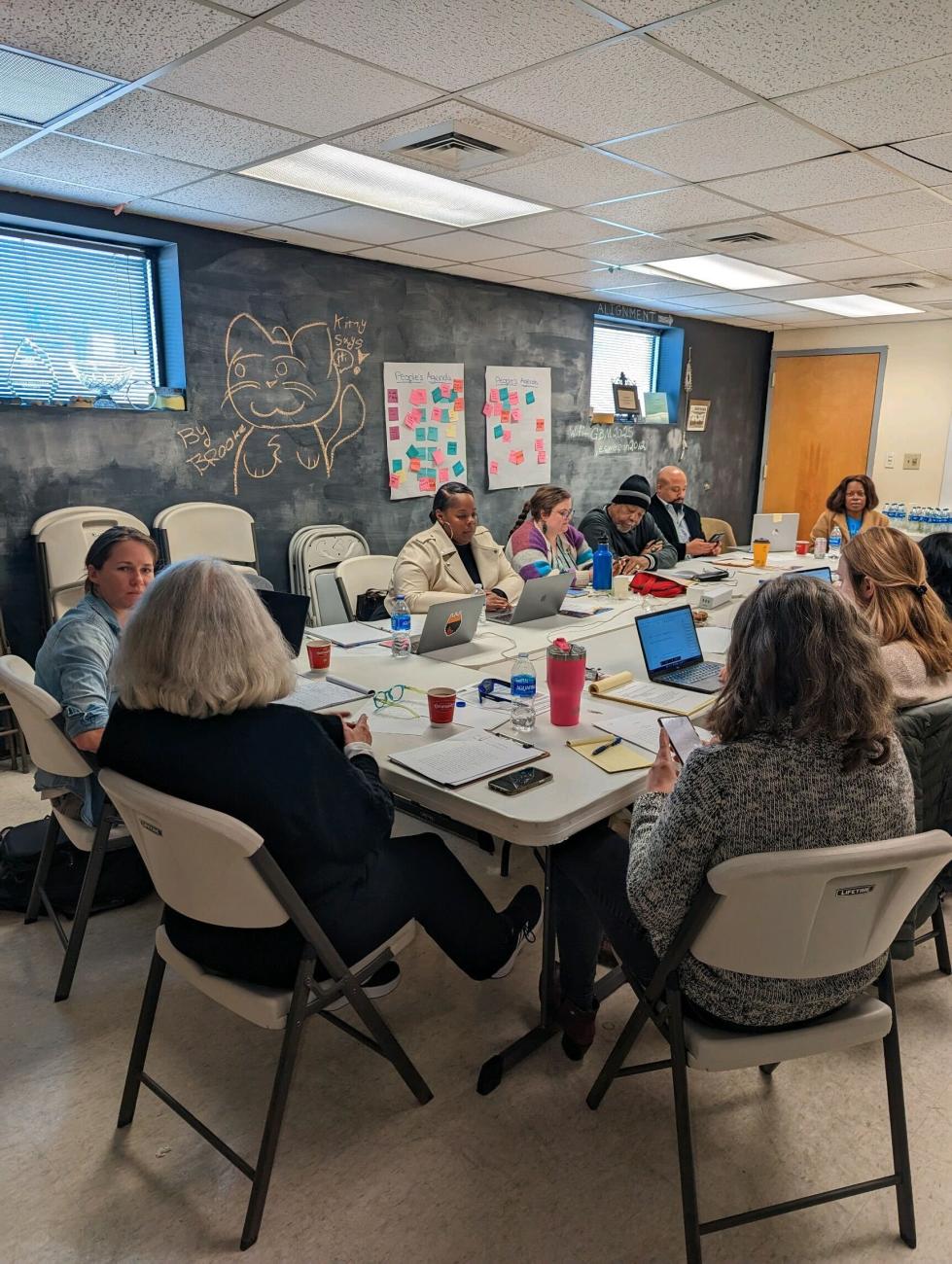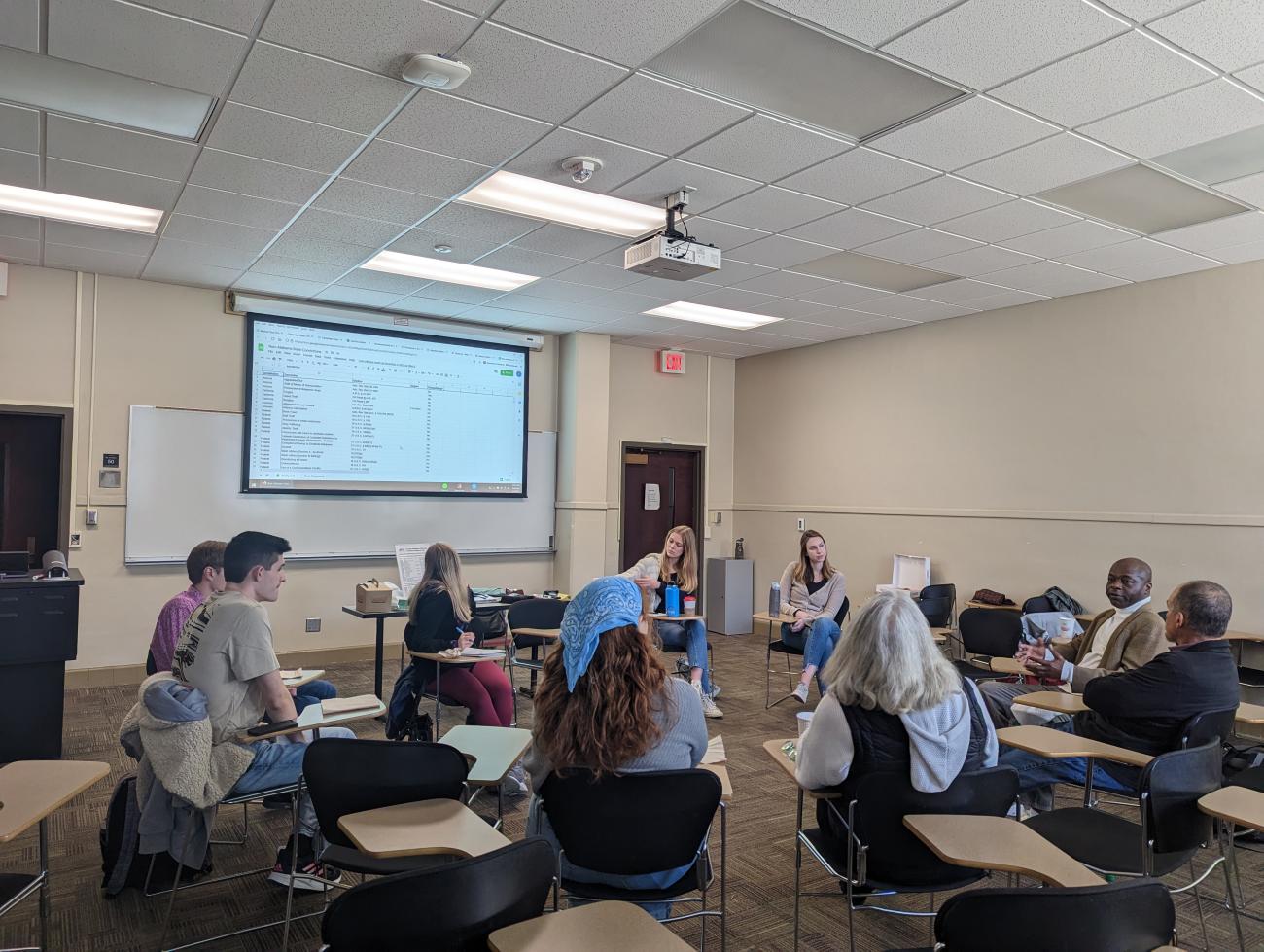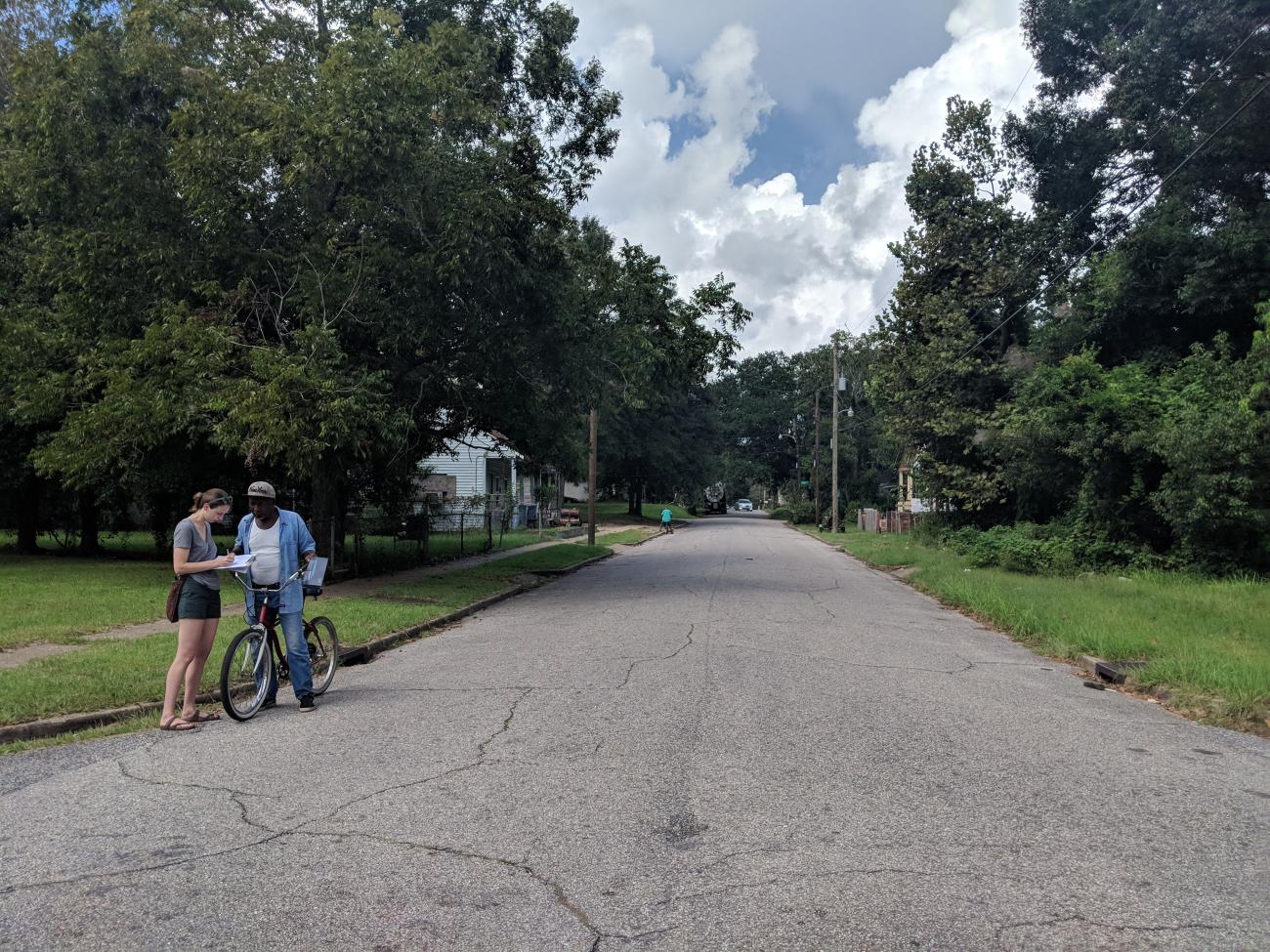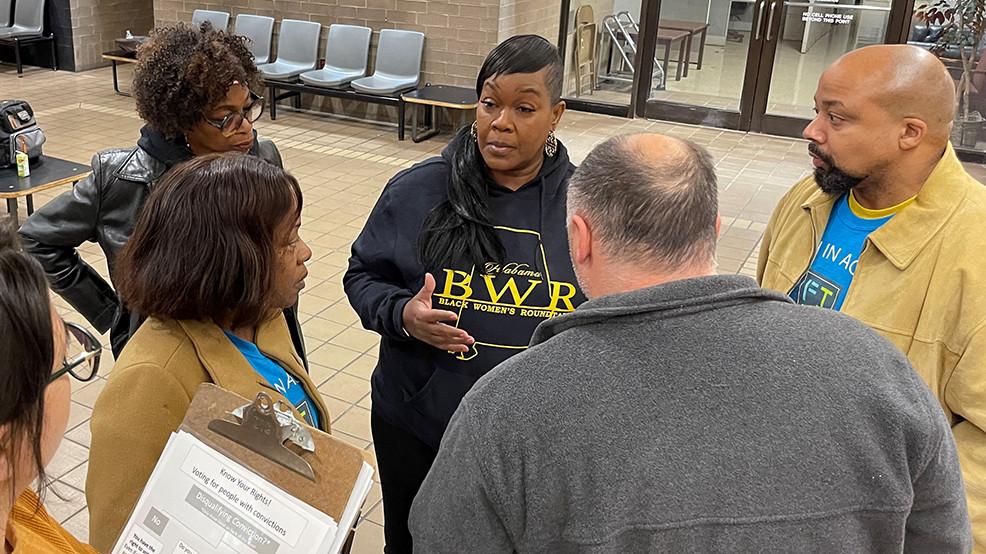On Bloody Sunday, televised violence against civil rights activists in Selma, Alabama caused a national outcry and mobilized Congress to pass the Voting Rights Act. Fifty-eight years later, the State still has a long way to go to ensure Black Alabamians have equal access to the ballot box.
For decades, the Voting Rights Act served as a powerful tool against race-based voter suppression, but it did not guard against one very effective Jim Crow-era tactic: felony disenfranchisement.
In 1901, Alabama passed a constitution disenfranchising people convicted of certain felonies with the explicit intention of disenfranchising Black men. True to its design, that provision continues to disproportionately strip Black Alabamians of the right to vote.
In 2017, Alabama passed a law clarifying which crimes make someone ineligible to vote. This clarification had the potential to re-enfranchise tens of thousands of Alabamians who did not have a disqualifying conviction yet had previously been denied the freedom to vote.
However, the then-Secretary of State of Alabama refused to spend any of their resources informing newly eligible citizens that they can vote or assist them in registering. In fact, 72% of Alabamians with felony convictions who are not registered to vote still do not know that the law has changed, much less whether it has restored their voting rights.
Alabama’s felony disenfranchisement scheme is one of the harshest in the nation, withholding the freedom to vote from 7.6% of the voting-age population and 15% of the Black male voting population.
Campaign Legal Center’s Restore Your Vote (RYV) program seeks to combat felony disenfranchisement nationwide, so more voters have a say in the decisions that impact their lives. RYV has assisted nearly 4,000 Alabamians with past convictions and trained more than 3,000 community leaders and activists on the rights restoration process.
The RYV team recently traveled to Alabama to work with and support our partners who are fighting felony disenfranchisement on the ground. We met with activists and organizers from many organizations, many of whom make up the Alabama Voting Rights Coalition.
The coalition includes Greater Birmingham Ministries, the League of Women Voters of Alabama, Faith in Action Alabama, The Ordinary People Society, the ACLU of Alabama, the Alabama State Conference of the NAACP, the Poor People’s Campaign, the Mobile Area Interfaith Conference, the Southern Movement Assembly, Alabama Appleseed, the Southern Poverty Law Center, Alabama Values, the Black Women’s Roundtable, and the Selma Center for Nonviolence, Truth, & Reconciliation.
Alongside these organizations, the RYV team uses a variety of tools to try and reach Alabamians who need assistance navigating the confusing Alabama rights restoration process.
RYV launched RestoreYourVote.org to reach people who need help restoring their voting rights and published the Alabama Rights Restoration Manual to reach voting rights activists and disenfranchised Alabamians. In addition to those resources, RYV regularly uses litigation and outreach strategies to expand access to democracy.
Litigation
In 2022, CLC sued Alabama to seek public records related to lists of purged voters, as well as Alabamians denied the right to vote due to felony convictions. The court ruled in favor of our client, Greater Birmingham Ministries (GBM), forcing the State to provide GBM with records of nearly 26,000 people who were purged or had their voter registration denied.
Thanks to this victory, CLC partnered with GBM and the student organization University of Alabama, Vote Everywhere, to text the individuals whose records GBM received. Together, we were able to contact nearly 17,000 people, had 1,887 text conversations and engaged with 590 people who wanted assistance getting their right to vote restored.
At the root of Alabama’s felony disenfranchisement scheme is the “moral turpitude” standard that determines what felonies disqualify a voter. The term was put into Alabama’s constitution in 1901 during a constitutional convention expressly held to “establish white supremacy.”
CLC challenged this standard in a lawsuit on several grounds, including because it discriminated against voters based on race. It also challenges Alabama’s system for restoring the right to vote, which conditions voting on a person’s ability to pay court fines and fees—a modern-day poll tax.
CLC also served as co-counsel in Harris v. Alabama, representing an Alabama resident whose voter registration was unlawfully denied because the State failed to train relevant staff on the 2017 law change or clarify how out-of-state and federal felony convictions should be treated. While she was unable to vote in the 2020 election, she has since won her right to vote back through our litigation.
Direct Services and Outreach
Another tool the RYV program utilizes is direct services. The RYV team and the Mobile Area Interfaith Conference held a training and clinic to inform Alabamians about the voting rights restoration process and help people get their right to vote restored.
The RYV team also went door-to-door with organizers and volunteers from the Poor People’s Campaign, NAACP and Southern Movement Assembly to restore voting rights and spread awareness about the 2017 law change. We also gathered petition cards to support ending Alabama’s modern-day poll tax, which bars people who owe certain legal financial obligations from being able to restore their voting rights.
Improving Jail Voting
CLC also joined Black Women’s Roundtable of Alabama, Faith in Action Alabama and the League of Women Voters of Birmingham for a voter restoration and registration drive at the Jefferson County Justice Center. In Alabama, people awaiting trial or serving time for misdemeanors retain their freedom to vote, provided they do not have a disqualifying felony conviction.
Jail-based disenfranchisement is not the result of one bad law, but a confusing net of practical barriers that deprives people of their freedom to vote and disproportionately silences low-income voters and communities of color.
For the 70% of jailed Alabamians who are incarcerated pre-trial—often because they are too poor to post bail—jail-based disenfranchisement is a modern-day poll tax. The racist legacies of Jim Crow and Bloody Sunday are reproduced inside Alabama’s jails, because while Black people represent just 28% of Alabamians, they are 43% of the state’s jail population.
In total, CLC and the local community groups helped register over 60 people incarcerated in this jail. For those with disqualifying convictions, the RYV team and its partners helped people in jail complete the necessary forms to get their right to vote restored.
Felony disenfranchisement laws carry discrimination in the criminal legal system forward, leading to disparities in political representation.
In Alabama, and across the country, the RYV team and its allies are working to give a voice to the 5 million Americans being silenced by felony disenfranchisement laws. After all, our democracy is strongest when every voter has a voice in it.




